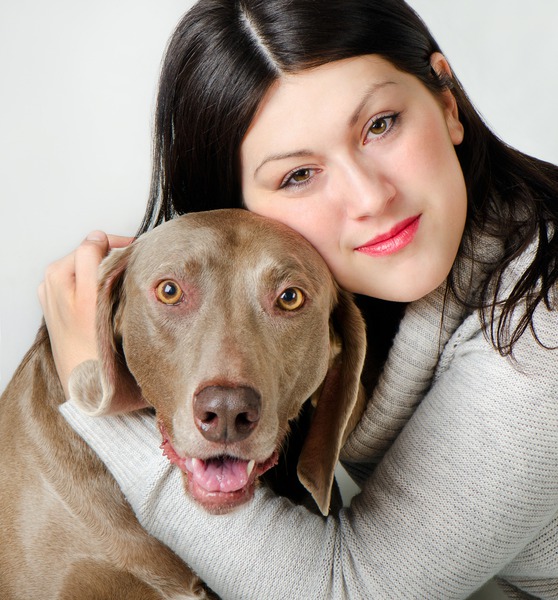Dogs fill our lives with joy and offer faithful companionship, yet owning a dog comes with the responsibility of providing them with the necessary training to ensure they are well-behaved and adaptable to their human family’s lifestyle. Professional training is a significant tool in developing good behavior in dogs, from basic obedience to more complex commands and social interactions.
Dog Behavior and the Need for Training
Dogs display a range of personalities and behaviors, some of which can be challenging for dog owners. Training is crucial to create mutual understanding and to assist your dog in navigating the human world safely and appropriately.
-
Effective Communication: Professional training creates a language bridge between you and your dog, strengthening your bond through better mutual understanding.
-
Behavior Correction: Unwanted behaviors in dogs, such as excessive barking or chewing, can be managed and corrected through consistent training routines.
-
Consistent Routine: Dogs benefit significantly from having a routine, and training creates a consistent structure for them to follow, enhancing their sense of security.
Trained Dog Benefits
By enrolling your dog in a professional training program, you open the door to a multitude of positive developments in their behavior.
-
Social Skills: Training plays a vital role in socializing your dog so they can interact well with both people and other dogs.
-
Improved Obedience: Through obedience training, your dog will learn to follow your directives quickly and willingly, enhancing their attentiveness and responsiveness.
-
Stress Reduction: A well-trained dog is typically calmer and more content, as they understand what is expected of them, which lessens their anxiety.
Preparing Your Dog for Professional Training
Getting your dog ready for the world of professional training means ensuring they are in the right state of health and mind for a new educational journey.
-
Health Check: Make sure your dog is in good health and is up to date with vaccinations before starting any training program.
-
Mental Preparation: Help your dog get into the mindset of learning by engaging in simple games and activities that challenge their mind.
-
Basic Commands: Introducing basic commands at home can give your dog a head start before formal training begins.
Training your dog goes beyond mere obedience; it serves as a foundation for a peaceful coexistence with your pet. Especially in bustling regions like Long Island, where dogs frequently encounter potentially overwhelming situations, proper dog training on Long Island is indispensable for a pet’s success in those environments. With proper training, dogs learn how to behave in various settings, leading to enjoyable experiences outdoors and in public spaces.
Role of Obedience Training in Shaping Behavior
Obedience training is not just about command compliance; it is the cornerstone of respectful and understanding communication between dogs and their owners. It sets the stage for a lifetime of good habits and behavior modification that benefits both the dog and its family.
Introduction to Dog Day Care Facilities and Boarding
As much as consistent training is essential, finding the right care for your dog when you cannot be there is equally important.
-
Day Care Benefits: Dog day care facilities provide a safe space where your dog can receive consistent care, indulge in social activities, and maintain routine while you are not available.
-
Boarding Essentials: Selecting the right boarding facility on Long Island, NY, involves assessing the environment and confirming that the facility’s staff can effectively reinforce your dog’s training practices.
Benefits of Professional Dog Training
Professional trainers offer a wealth of insight tailored to individual dogs, helping to address issues from aggression to separation anxiety.
-
Customized Approaches: No two dogs are the same, which is why professional trainers tailor their methods to suit each dog’s unique learning style and behavioral needs.
-
Aggression Management: For dogs that show signs of aggression, professional trainers can provide specialized strategies to manage and modify these behaviors safely.
-
Training Techniques: Professional trainers are versed in a range of techniques and approaches, ensuring a flexible strategy that adapts to your dog’s responsiveness.
Canine Communication
A deep understanding of how dogs communicate is imperative. Mastering the nuances of their language enables us to interact with our dogs more effectively.
-
Body Language: Recognizing and interpreting your dog’s body language is integral to understanding their emotions and reactions, allowing for a more empathetic approach to training.
-
Verbal Cues: The ways you speak to your dog, using different tones and volumes, can impact how they perceive instructions and react to you.
-
Consistency: Consistency in your commands and interactions provides clear guidance for your dog, making it easier for them to follow your lead.
Puppy Training
Puppies, with their developing personalities, greatly benefit from early Long Island puppy training. These formative lessons not only prevent future behavioral problems but also lay down a solid foundation upon which further training can be built, ultimately leading toward the goal of raising a well-adjusted dog.
Puppy training classes offer a structured environment infused with activities that promote essential skills such as socialization, obedience, and basic commands while introducing puppies to a variety of new and exciting experiences that will help them grow into confident and well-behaved dogs.
Ensuring Continuity in Training
Choosing a boarding facility for your dog while you are away should mirror their home environment as much as possible, with particular consideration of their training routines.
-
Staff Experience: Evaluate whether the facility’s staff has the expertise to understand and handle various dog behaviors and if they’re equipped to continue reinforcing the training your dog has received.
-
Facility Tours: Visiting prospective boarding facilities personally allows you to assess the environment firsthand and ask important questions about how they will accommodate your dog’s individual needs.
-
Training Programs: Inquire about whether the facility in question offers training programs or has provisions to ensure the consistency of the training you and your dog have worked on.
Wrapping Up
The journey through professional dog training leads to a world where dogs better understand the rules of human life, where miscommunications are less likely, and where the bond between you and your furry friend grows ever stronger. With dedication, patience, and the guidance of a professional, your dog’s behavior can be shaped into a form that is conducive to a happy, healthy, and hassle-free life for both of you. The key is to begin with a solid foundation of mutual understanding built on clear, consistent training that respects your dog’s individuality.





